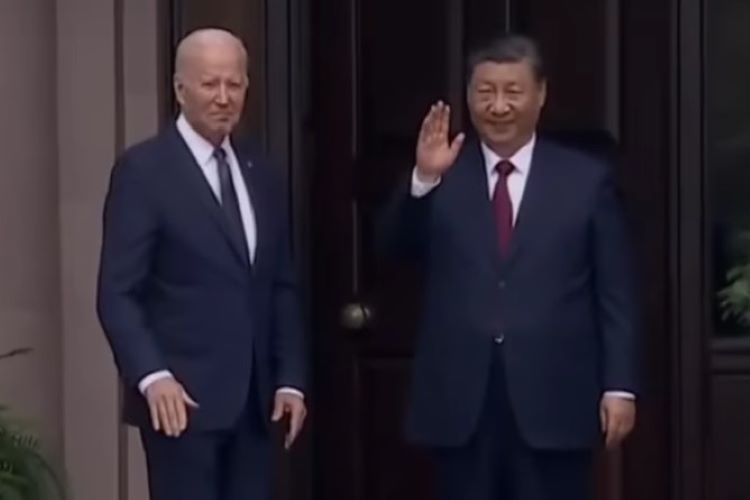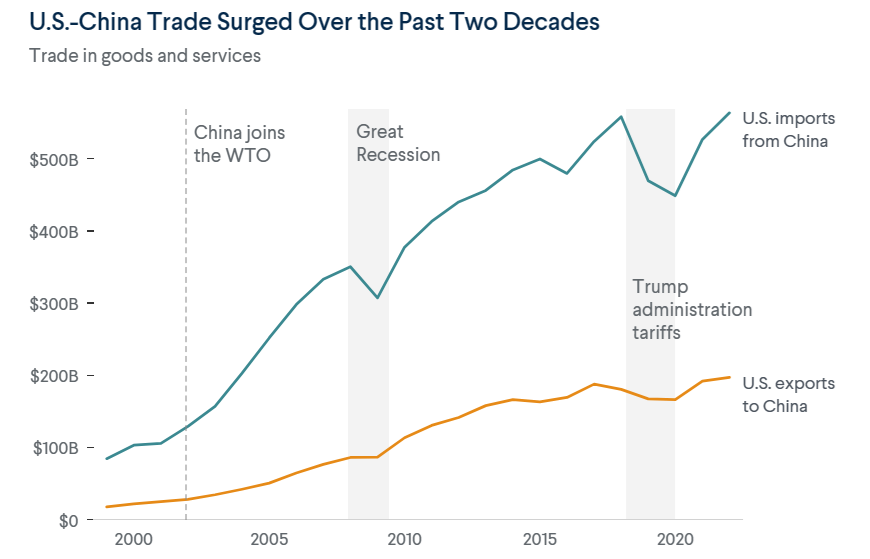
The Biden-Xi summit, held in San Francisco, was a much-anticipated event, signaling a critical juncture in the complex and often turbulent relationship between the United States and China. In a world increasingly defined by geopolitical rivalries and shifting power dynamics, this meeting was more than a diplomatic formality. It was an occasion to address some of the most pressing issues facing the two superpowers.
The choice of the Filoli estate as the venue was symbolic, offering a neutral and serene backdrop for discussions. President Biden’s gesture of greeting President Xi at the entrance was not just a courtesy but a deliberate display of respect and recognition of the importance of Sino-American relations. These gestures are significant in diplomacy, especially when dealing with a nation where symbolic acts are deeply valued.
READ I India’s highway construction programme facing challenges
Key agreements at Biden-Xi summit
The agreement on curtailing fentanyl production is a crucial step, given the opioid’s devastating impact on American lives. Equally significant was the decision to resume military-to-military communications, a practical measure to prevent misunderstandings and potential conflicts, especially in the context of heightened tensions over Taiwan and the South China Sea.
The discussions on Taiwan were perhaps the most critical aspect of the summit. Biden’s reaffirmation of the “One China” policy, coupled with the commitment to continue arming Taiwan, underscores the delicate balancing act the US is performing. This stance, while aiming at maintaining regional stability, also reflects the strategic ambiguity that has long characterised US policy in the region.

Biden’s efforts to engage Xi on issues like Iran’s role in the Middle East and Russia’s invasion of Ukraine signify an acknowledgment of China’s growing influence in global affairs. However, the lack of immediate, concrete responses from China underscores the complexities of leveraging this relationship in global conflict resolution.
The personal history between Biden and Xi adds a unique dimension to the summit. Their past interactions, dating back to their vice-presidential terms, provide a foundation for understanding and, potentially, a pathway to more effective communication. The personal anecdotes, like Biden acknowledging Peng Liyuan’s birthday, may seem minor but are part of the nuanced world of diplomatic relations where personal connections can sometimes bridge political divides.
The chip war and economic rivalry
At the heart of the summit was the discussion on technology, particularly the US restrictions on the export of advanced computer chips. This issue is pivotal as it touches on China’s ambitions to be a global leader in technology and the US’s efforts to safeguard its technological edge and national security. Xi’s contention that these restrictions are aimed at stifling China’s technological progress, and Biden’s emphasis on not aiding China’s military capabilities, highlight the deep-seated rivalry and mistrust that define this aspect of the bilateral relationship.
Xi’s visit to the US came at a time when China faces significant economic challenges, including a slowing economy and the impact of the Covid-19 pandemic. His call for lifting sanctions and changing export control policies reflects these internal pressures. The summit, in this context, was also an opportunity for Xi to reassure US investors and address concerns about China’s economic trajectory.
The Biden-Xi summit had significant economic implications, especially in the context of China’s current financial challenges. President Xi’s emphasis on lifting US sanctions and altering export controls, particularly regarding sensitive technological equipment, speaks to the broader concerns about China’s economic growth and global competitiveness. With an aging population and the lingering effects of the COVID-19 pandemic, China’s once meteoric economic rise has tempered. The summit provided a platform for Xi to articulate these economic pressures and seek relief, albeit indirectly, through diplomatic engagement.
The summit also had undercurrents related to investor confidence. With signs of declining foreign investment in China, partly due to its economic slowdown and regulatory crackdowns, Xi’s engagement with Biden was also a strategic move to reassure American and global investors. The very occurrence of the summit, despite its modest outcomes, could help stabilise investor sentiment by reducing geopolitical uncertainties. It is a reminder that high-level diplomatic meetings can have significant ripple effects on global markets and investor decisions.
The discussions at the summit, while not resulting in immediate economic policy changes, set the stage for potential future negotiations that could impact global economic dynamics. The US and China are the world’s largest economies, and their relationship significantly influences global trade, investment flows, and overall economic stability. Continued dialogue, as agreed upon in the summit, may pave the way for more cooperative economic relations, potentially easing trade tensions and fostering a more predictable environment for global economic activities.
The Biden-Xi summit was a testament to the enduring complexities of US-China relations. While the agreements reached were modest, they represent essential steps in managing a multifaceted and competitive relationship. The discussions around Taiwan, technology, and global issues highlight the strategic challenges ahead. This summit is not a panacea for the deep-seated issues that define US-China relations, but it is a critical step in navigating this crucial bilateral relationship. As the global landscape continues to evolve, the way these two powers manage their relationship will have profound implications for international stability and order.
While the Biden-Xi summit primarily focused on diplomatic and strategic issues, its economic implications are far-reaching. The meeting was a step towards addressing some of the immediate economic tensions and uncertainties, setting a foundation for future economic engagement that could shape the global economic landscape in the coming years.

